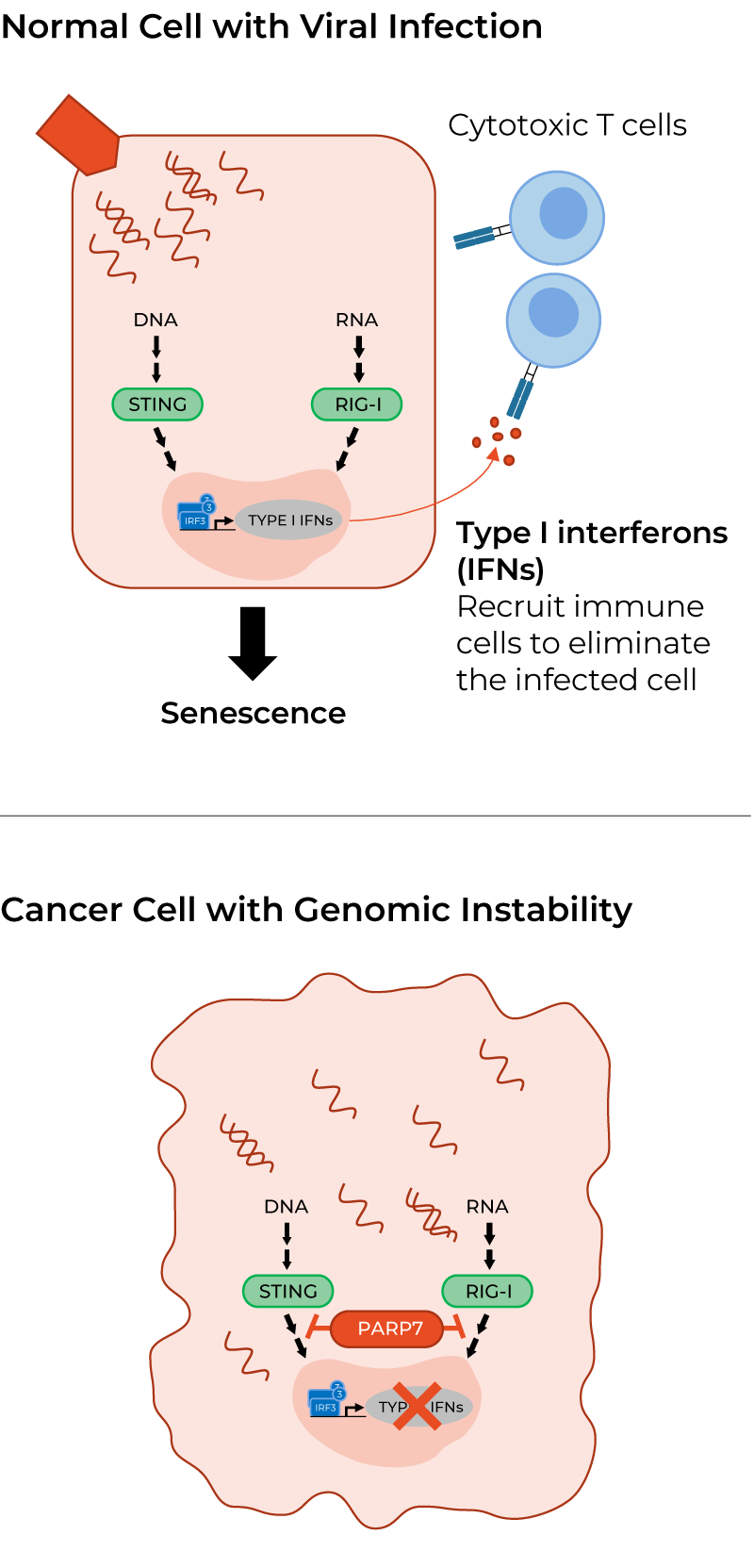RBN-2397 – Restoration of Interferon Signaling and Anti-tumor Immunity by Inhibition of PARP7
Ribon’s lead product candidate, RBN-2397, is a first in class orally available small molecule inhibitor of the monoPARP PARP7, currently being evaluated as treatment for solid tumors. These tumors include smoking-associated cancers of the aerodigestive tract and breast cancer. By selectively inhibiting PARP7 in tumor cells, RBN-2397 has been shown in preclinical studies to directly inhibit cellular proliferation and restore Type I interferon signaling to stimulate an innate and adaptive antitumor immune response.
We are currently conducting a Phase 1 clinical trial with RBN-2397 as a monotherapy in patients with advanced solid tumors to primarily assess the safety and tolerability of RBN-2397. Secondary objectives of the trial are characterizing the safety profile, examining the pharmacokinetic parameters, and identifying any initial signs of antitumor activity of RBN-2397. The dose escalation portion of the Phase 1 trial is complete, and we are now enrolling patients in several defined cohorts as a single agent, including squamous cell carcinoma of the lung, head and neck cancer and hormone receptor positive breast cancer. RBN-2397 is also currently in an open label, multicenter Phase 1b/2 single arm study that will evaluate the safety and antitumor activity of RBN-2397 in combination with pembrolizumab in patients with confirmed diagnosis of advanced squamous cell carcinoma of the lung who have received prior therapy.
For more information, go to www.clinicaltrials.gov or contact us at [email protected].
Role of PARP7 in Cancer
Normal cells do not express high levels of PARP7. PARP7 is upregulated in response to cellular stress, including exposure to toxins in cigarette smoke, steroid hormones, and during viral infection. PARP7 acts as a brake on the cellular stress response by negatively regulating the Type I interferon response . During viral infection viral nucleic acids accumulate in the cytosol, and Type I interferons are produced as part of the innate immune response which serves to inhibit viral replication through intrinsic effects on infected cells and activation of both the innate and adaptive immune systems.

Genomic instability in cancer cells can also lead to the accumulation of aberrant cytosolic nucleic acids, stimulating these same stress pathways. Ribon’s data demonstrates that PARP7 serves as a similar brake in cancer cells to block the production of Type I interferons and suppress the normal cellular stress response. Thus, expression of PARP7 enables cancer cells to escape senescence, or the loss of a cell’s ability to divide, and avoid immune detection and subsequent elimination.
By inhibiting PARP7 in tumor cells, RBN-2397 has been shown in preclinical studies to directly inhibit cellular proliferation and restore Type I interferon signaling to stimulate an innate and adaptive antitumor immune response.